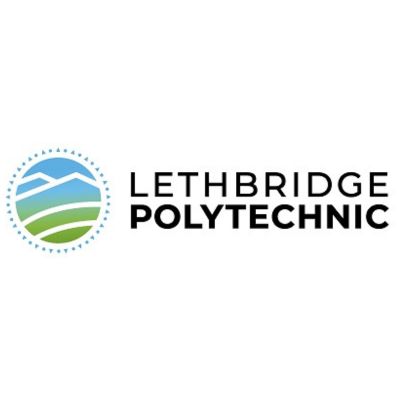When you know yourself, you can plan your career and education based on what's important to you: your interests, abilities, values and experiences.
There was an error. Please try again.
This page is already listed in your guide. Please choose a different page to add.
Bachelor of Criminal Justice Criminal Justice

Lethbridge Polytechnic
lethpolytech.ca
Recruitment Services
3000 College Drive South
Lethbridge, Alberta, T1K1L6, Canada
-
Program Type Bachelor's
-
Credential Type Degree
-
Length 4 Years
- Part Time Only
- Cooperative Education
- Continuing Education
- Distance Learning Available
General Requirements: All applicants must meet the general admission requirements for Lethbridge College programs, as indicated in the Admissions section of the calendar.
Academic Requirements: Students who have completed a Correctional Studies diploma or Criminal Justice - Policing diploma from Lethbridge College or equivalent will be accepted directly into the Bachelor of Criminal Justice.
Applicants with a related diploma/degree in a human service or justice related field such as child and youth care, law enforcement, addictions counselling, social work, criminology or psychiatric nursing will also be admitted, and may be required to complete bridging courses in order to meet degree requirements.
Applicants with a diploma/degree require a minimum cumulative GPA of 2.0 or higher to be accepted directly into the Bachelor of Criminal Justice.
Prior Learning Assessment (PLA): If you have experience working in this field of study, you may be eligible for Prior Learning Assessment.
Work-Integrated Learning (WIL) Pre-Placement Requirements
This program has a required Work-Integrated Learning Pre-Placement Requirements (WIL) component. The College dictates the legal terms and conditions governing the WIL.
Students must meet and maintain certain requirements to participate in the WIL setting as determined by programs, practice agencies and/or legislated by government bodies. These may include health (e.g., immunizations, screening tests, etc.), privacy and security (e.g., police information check, IT access, etc.), and OH&S requirements (e.g., CPR certification, Fire Safety, WHMIS, Mask Fit-testing, etc.).
Workers' Compensation Board (WCB) coverage - WIL placement agencies and employers usually require WCB coverage on behalf of the student. Students enrolled in post-secondary institutions in Alberta are deemed to be employees of the Province of Alberta and, as such, provided WCB coverage. In certain instances for students outside of Alberta, WCB coverage may not be provided (e.g., non-Alberta residents taking a course solely through distance learning with a WIL placement outside of Alberta). These students are advised to contact the program prior to application.
Students with disabilities who may require accommodations must schedule an appointment with Accessibility Services at Lethbridge College preferably upon acceptance to the program and no later than the Add/Drop deadline to identify potential impacts of their disabilities in the WIL setting. As part of this process, it may be necessary to collaborate with WIL supervisors to determine appropriate accommodations that do not compromise the health and safety of clients, essential placement requirements, or mandatory licensing processes. Failure to consult with Accessibility Services in a timely fashion may compromise the student's WIL placement and opportunities for success in the WIL setting.
In order to participate in a WIL, a student may be required to complete a Police Information Check or other type of Security Clearance to the satisfaction of Lethbridge College and the WIL organization. Completion of a WIL does not guarantee employment with a WIL organization. Many disciplines are provincially or otherwise regulated (e.g., health professions under Alberta's Health Professions Act); such regulation is beyond Lethbridge College's control. Completion of a WIL and graduation from a certain program do not guarantee one's licensure or admission into a regulatory body. Prospective students are encouraged to consult with a representative of the relevant regulatory body if they have concerns.
WIL sites may include Lethbridge, surrounding rural communities, and may extend beyond these boundaries depending on WIL site availability and approvals. WILs may include day, evening, and/or weekend schedules. Students will be expected to travel to assigned sites and will be responsible for arranging travel and any associated costs.
Work-Integrated Learning (WIL):
The college dictates the legal terms and conditions governing the work placement.
Applicants are advised they will be required to undergo a Criminal Record Check prior to enrolling in the placement. The existence of a criminal record may affect placement and future employment prospects. The agencies reserve the right to determine who is considered a suitable candidate.
Courses may be offered in a variety of formats. The format in which a course is offered may change at short notice, depending on enrolment and student needs. The current delivery formats may include: on campus/face-to-face (you will attend class at a scheduled time and location. An instructor will be physically present to assist you); online (the course is delivered entirely in an online environment); blended (the course is delivered through a mixture of face-to-face and online).
New third-year applicants, or transfer applicants with advance standing through completion of a related diploma, are accepted into the program in the Fall (September) term for either on-campus or online study. Students can also start in the Winter (January) or Spring (May) terms for online study.
Search Transfer Alberta for course and program transfer information including transfer agreements between post-secondary schools in Alberta, British Columbia, Northwest Territories, Nunavut and Yukon.
Transfer(s) available outside of Transfer Alberta: Not available
Updated September 11, 2024. The information contained in this profile is current as of the date shown.
Educational program information is provided as an introduction and for general reference. For current information about programs and school requirements or policies, check the school calendar, visit their website or contact the school directly.
The Government of Alberta is working in partnership with the Government of Canada to provide employment support programs and services.

